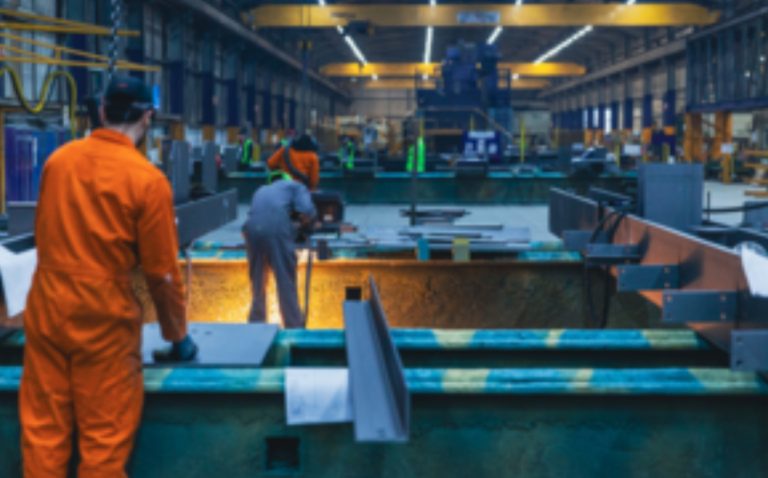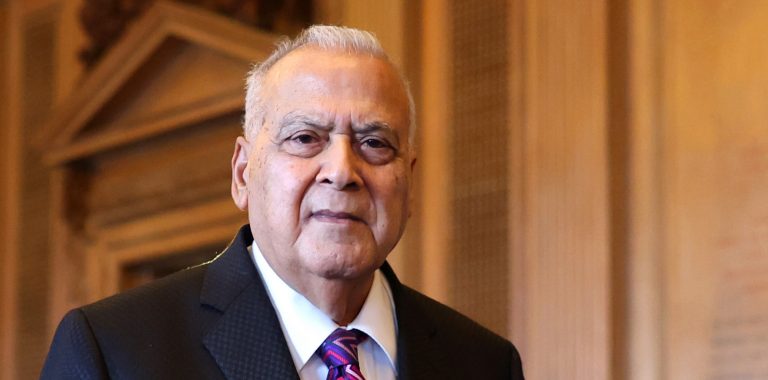Water companies get £180m to prevent sewage spilling into watercourses
York structural steel firm helps build hospital in £4.5m contract
Leeds honours entrepreneur for contribution to the city
One Harrogate brewery acquires another with help of private investor
Harrogate-based Rooster’s Brewery has acquired Daleside Brewery Ltd with the help of a substantial amount of new capital from a private investor.
Daleside will continue to operate as a separate company with its existing team of staff and brew its existing range of beers, but will in due course transfer and fill spare capacity at Rooster’s in Harrogate’s Hornbeam Park. The two businesses will continue to trade separately within their respective markets with the Daleside portfolio of beers brewed by their existing team, using their own dedicated strain of yeast.
Daleside Brewery was founded in 1991 by Bill Witty, who passed away in 2007. Eric Lucas joined the brewery in 1993, eventually becoming MD.
Ian Fozard, Rooster’s Chairman, said: “We know the Daleside business and the team well and, with only a few miles between us, have helped each other countless times out over the years. In addition, my son Oliver, Rooster’s Head Brewer, did his apprenticeship and cut his teeth in the world of brewing at Daleside in the early 2000’s, while I was also a good friend of Daleside founder Bill Witty.”
Eric Lucas, Daleside’s MD, said “The long-term future of Daleside Brewery, its team and its brands have been secured and will remain in Harrogate with the highly respected and acclaimed Rooster’s Brewery. Being with Daleside has been an astonishing and enjoyable journey. On behalf of myself and my fellow owners, I would like to thank everyone who has contributed and has been part of this great Daleside experience. I’m sure that we’re all looking forward to many pints of both Daleside and Rooster’s beers in the future.”
Yorkshire Dales hotel sold
Former M&S building in Hull set for restoration with Levelling Up Funding
Construction work to begin after Albion Square CDC plans approved
Lloyds Banking Group appoints new Ambassador for Yorkshire and the Humber
Lloyds Banking Group has appointed Mark Burton as its new Group Ambassador for Yorkshire and the Humber.
Mark will work with local politicians, businesses and community networks to tackle some of the core challenges facing the region.
He’ll drive the Group’s efforts to help more people across Yorkshire and the Humber access a secure home, bringing together policy makers and the industry to deliver more social housing. Together with its charity partner Crisis, the Group is calling for one million more homes at social rent within the next ten years.
Mark Burton, Group Ambassador for Yorkshire and the Humber, said: “We’ve been part of the furniture in Yorkshire and the Humber since 1852. Now, with over 2 million personal and business customers in the region, we have a pivotal role to play in helping Yorkshire and the Humber prosper.
“I’m committed to being a vocal supporter of everything that Yorkshire and the Humber has to offer and I’m looking forward working across our community to help our region thrive.”
Mark will also focus on bringing the expertise of the Group to bear on areas such as driving economic growth, the transition to net zero and the financial resilience of Yorkshire and the Humber’s people and businesses.
Mark lives in York and has worked at Lloyds Banking Group for almost 16 years. He will bring a wealth of experience of working with, and advising, some of the UK’s most significant institutions, such as universities. In his current role as Head of Regions, Mark has been at the forefront of the Group’s work on regional development, an area he will continue to focus on as Ambassador.
Outside of his work for the Group, Mark is also an associate non-executive director at Leeds Teaching Hospital NHS Trust.
7 subtle ways to make your company culture stand out
Open up communication
Making work a setting where individuals feel comfortable communicating can boost morale. Whenever possible, foster an environment that values honest feedback. Feedback sessions between employees and management can foster continuous improvement and mutual respect by making employees feel heard and respected, as well as helping management understand their team’s beliefs and motivations. Regular open forums where anybody may discuss workplace culture, projects, and processes can promote free discourse and community belonging. These forums can help people overcome challenges and brainstorm business growth. Your office can also include anonymous suggestion boxes. These, whether digital or physical, are helpful for eliciting people’s perspectives who may not feel comfortable speaking up in public. These suggestion boxes allow staff to voice ideas and issues without fear of being judged or “singled out” from the crowd. Opening communication can boost employee engagement and collaboration, making the workplace more productive and peaceful.Flexible work arrangements
Today’s workforce values workplace flexibility, and there are many ways to provide it, each with its own benefits. Allowing employees to work remotely, from home or elsewhere can raise morale and reduce stress. Recognising employee needs and preferences promotes a healthier work-life balance. If your business model permits, give your personnel more scheduling flexibility to work when they’re most productive. Employees will be happier and more engaged if they can schedule their work around their obligations, and at times when they feel most inspired and energetic. Work-life balance is crucial to employee health and satisfaction, and various instances of research have shown that workplace flexibility boosts productivity and reduces absenteeism. These types of arrangements can show employees that you trust them and are willing to meet their needs, earning their loyalty and respect.Professional development investment
Online courses and qualifications are a great way to enhance staff members’ skill sets and knowledge bases. Employers can look to funnel some of their budget into providing memberships to top educational platforms, or paying for online seminars and workshops. Similarly, encouraging mentorship ties inside an organisation can help with knowledge transfer and career development. Employees can learn from more seasoned coworkers and improve their own career navigation through mentorship programmes – what’s more, this is a great way to get staff members engaging with one another in a productive and engaging way that could foster genuine bonds of trust. Giving each employee a learning and development budget empowers them to take charge of their own progress and direction in your company. This money could cover conferences, certificates, and specific training. Give employees the “keys” to their career growth and let them pursue learning opportunities that meet their interests (preferably in a way that suits your business goals).Recognise success
To encourage and retain your staff, you may want to make efforts to recognise and reward team members for their contributions. There are innumerable ways to do this, and some work better than others. Encourage employees to acknowledge the accomplishments of their coworkers through a peer recognition platform. This helps to create a more positive work atmosphere, and encourages a culture of vocalised gratitude. Meetings on a regular basis or a digital platform might both serve as facilitators for such programmes. Extra vacation days, public recognition, or chances for professional development are examples of non-monetary incentives that can have a big influence. Workers will feel appreciated because these prizes can be personalised to their requirements and tastes, showing them that you, as an employer, recognise and value them as an individual, not just another “cog” in the machine. No matter how big or small, it’s important to celebrate both individual and team accomplishments and milestones. This will raise morale and inspire people to keep working hard. There is a wide spectrum of celebrations, from handwritten messages of gratitude to extravagant team parties. Organisations can motivate their staff to keep performing well and committing to the company’s objectives by establishing a culture that frequently acknowledges and rewards accomplishments in a genuine and meaningful way.Promote wellness
Workplace wellness programmes should promote employees’ physical, mental, and emotional health. Your employees will be more productive, creative, and happy at work if they lead healthy lifestyles. For the body, offering gym memberships or cash donations encourages staff to be active and healthy, improving wellness and productivity. Ergonomic furniture and tools help reduce physical strain and long-term health issues, showing your commitment to employee well-being. Supporting mental health days, reducing stigma, and enforcing work-hour limitations for all employees helps create a healthy work environment. Companies that emphasise health can help employees find a better balance, which enhances their satisfaction at home and at work and their productivity.Encourage relationships
Fostering workplace social interactions improves teamwork and employee satisfaction. Your workforce may have a diverse set of values, interests, and qualities, making this a tricky – but by no means impossible – environment to traverse. You can’t force people to like one another, but there are some things you can do to encourage the natural development of social relationships. Lunch-and-learns or interest-based groups can help employees bond without the demands of formal events like a workplace Christmas party. Outside of a structured setting, creating “breakout” spaces for leisure or casual talk can help team members relax and open up, leading to better bonds and more unplanned encounters. Don’t underestimate the power of a ping pong table! Promote a supportive and inclusive workplace to boost morale and belonging. Instead of talking about work, encourage your workers to talk about their personal lives, interests, and ideals to build camaraderie and deeper understanding. Team members should feel valued and included, and generating a welcoming culture can promote a more cohesive and supportive workplace.Lead by example
Leadership has an enormous effect on company culture. When leaders model the behaviour they want to see filter through their business, they set the tone for everyone to follow. A leader’s dedication to the company’s principles and culture might be best shown by taking the lead in implementing the changes they promote. A leader’s example can motivate followers to do the same, whether that’s through vulnerability, open communication, or taking part in professional development opportunities. A culture of trust and open communication may flourish when leaders set an example by being vulnerable and honest about the struggles they face. When workers feel their opinions matter, they are more likely to voice them. When leaders set a good example, they inspire their teams to do their best work by creating an environment of mutual respect, trust, and constant progress.Conclusion
In closing, if you want your employees to be happy, stay, and productive, it starts with the creation of a pleasant work environment. From encouraging open communication and providing flexible work arrangements to setting a good example to your staff, all of the tactics discussed in this article aim to improve workplace culture in a genuine and successful way. Businesses should take it slow when introducing new policies and procedures, testing several approaches to see what works best for their employees. By taking baby steps and providing constructive criticism, you may make changes and encourage a growth mindset.Company pulls plug on York’s scooter and bike hire service
Bike and scooter hire company Tier has told City of York Council that it won’t extend its contract and will end its E-Scooter and E-Bike trial in the city at the end of May.












